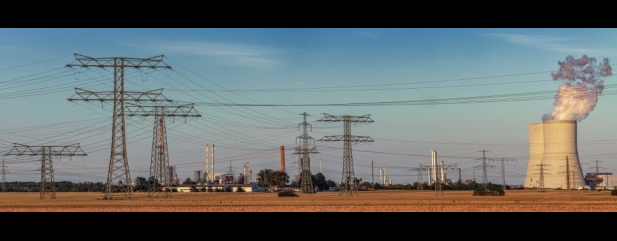Archived article
Please note that tax, investment, pension and ISA rules can change and the information and any views contained in this article may now be inaccurate.
Don’t let your money get caught in stranded assets

Weighing up the impact of being invested in stranded assets could be on the agenda for many investors in the coming years, particularly those with money in the energy and property spaces.
Action to address climate change will see a large number of companies having to write down the value of assets (potentially to zero), thus having a negative impact on the valuation of their own shares.
Someone invested in a big oil and gas producer is likely to have been attracted to its dividends and may share the view that there is still strong demand for its commodities.
They may think that selling the shares now could be a mistake as there are still decent returns to be made from such an investment.
However, it does seem inevitable that oil and gas companies’ traditional assets could soon be worth a lot less as the world switches away from fossil fuels to renewable energy.
Craig MacKenzie, Aberdeen Standard Investments’ (ASI) head of strategic asset allocation, says he has shifted £500m in the past few months into the European renewables sector, taking money out of various sectors.
He indicates that ASI will start to forecast lower returns from companies involved in fossil fuels in a year’s time, saying he can’t do the changes until he has climate scenarios to support his financial modelling.
ONE STEP AHEAD
Some companies are already getting ahead of the game in terms of responding to climate change and the need to alter their business structure. For example, a number of the big oil companies are investing in electric car infrastructure and renewable energy.
Rio Tinto (RIO) last year pulled out of the coal industry, marking a significant development for the mining industry in terms of addressing climate change concerns. Utility provider SSE (SSE) is to close its last UK coal-fired power station next year.
Many investors are also showing forward-thinking. A giant UK pension scheme called Nest is to sell all of its tobacco investments over the next two years – not because of health concerns but rather that it views the industry as being a stranded asset. Nest says ‘tobacco is a struggling industry which is being regulated out of existence’.
You might be surprised to discover that property is also on the list of sectors where investors need to be careful. Governments in several parts of the world are making it harder for landlords to let buildings with poor energy certificates, which could lead to an increasing number of stranded property assets.
FUTURE CASH FLOW CONCERNS
Investors must understand that the stock market is always focused on the future. The market is already starting to price in a discount for companies that have an image problem thanks to being involved in sectors with a questionable future, as illustrated by share price weakness among tobacco and coal producers.
Next will be concerns about long-term cash flows from certain sectors which means it is time for you to take a good look at your portfolio and think about which companies may exist in a different form in 10 years’ time, or even exist at all.
Important information:
These articles are provided by Shares magazine which is published by AJ Bell Media, a part of AJ Bell. Shares is not written by AJ Bell.
Shares is provided for your general information and use and is not a personal recommendation to invest. It is not intended to be relied upon by you in making or not making any investment decisions. The investments referred to in these articles will not be suitable for all investors. If in doubt please seek appropriate independent financial advice.
Investors acting on the information in these articles do so at their own risk and AJ Bell Media and its staff do not accept liability for losses suffered by investors as a result of their investment decisions.
Issue contents
Big News
- Woodford Equity Income wind-up shakes fund industry to its core
- Could debt concerns at rival help Domino's Pizza?
- Shareholder dissent remains muted
- First glimpse at how stocks could react to positive Brexit deal
- TUI and Jet2-owner Dart capitalise on Thomas Cook ‘game-changer’
- UK dividend growth under threat

 magazine
magazine








